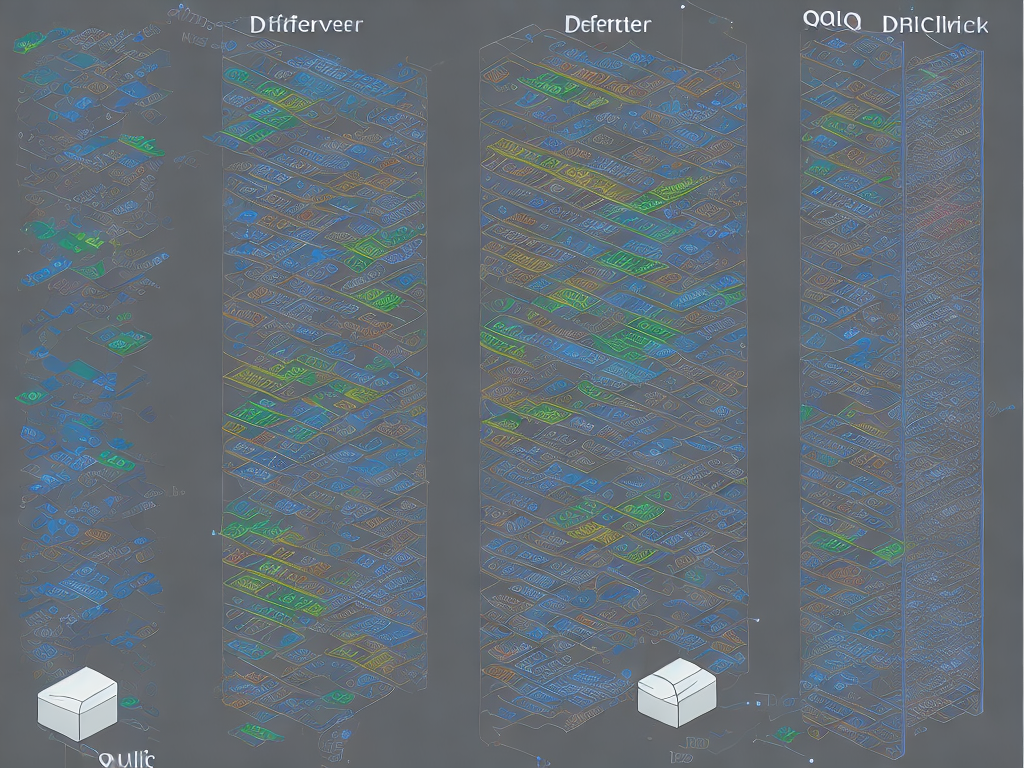
SQL and NoSQL databases are two different types of databases that are used for storing, retrieving and managing large amounts of data. In the technical world, SQL databases have been around for decades, but in the last 10 years or so, NoSQL databases have become increasingly popular, especially in the age of Big Data. In this article, we will explore the differences between these two types of databases and examine the pros and cons of using each one.
SQL Databases
SQL stands for Structured Query Language. In simple terms, this means that data in an SQL database is organized in a structured manner, which makes it easier to retrieve and manage. SQL databases are primarily used for managing structured data such as bank transactions, financial records, and healthcare information.
One of the features of an SQL database is the use of tables to store data. Tables have rows and columns, and each column corresponds to a particular data type. This makes it easier to sort, filter, and retrieve data. SQL databases are also known for being reliable, scalable, and secure.
Some of the most popular SQL databases include MySQL, Oracle, Microsoft SQL Server, and PostgreSQL. Each of these databases has its own unique features and strengths, but they all adhere to the basic SQL standards.
Pros of SQL Databases
- Reliability: SQL databases are highly reliable and have been used for decades to store important data. They are designed to ensure data integrity and consistency, which makes them a popular choice for financial and healthcare data.
- Structured: Data in an SQL database is organized in a structured manner. This makes it easier to retrieve and manage data, especially when working with large datasets.
- Security: SQL databases are highly secure and have many built-in security features to protect data from unauthorized access.
Cons of SQL Databases
- Limited scalability: SQL databases may not be as scalable as NoSQL databases, which means they may struggle to handle large amounts of data.
- Slow performance: SQL databases may have slower performance, especially when dealing with complex queries.
NoSQL Databases
NoSQL stands for Not Only SQL. This type of database is designed to handle unstructured data, such as social media posts, photos, and videos, and is particularly well-suited for handling large amounts of data. NoSQL databases are also known for being highly scalable and flexible.
One of the features of NoSQL databases is the use of document-oriented databases, key-value stores, and graph databases, rather than traditional tables. Document-oriented databases store data in a document format, rather than using tables. Key-value stores use a database of unique keys and corresponding values, which makes it easy to look up data by key. Graph databases use a graph model to store data, enabling complex relationships between data to be represented.
Some of the most popular NoSQL databases include MongoDB, Redis, Cassandra, and Amazon DynamoDB. Each of these databases has its own unique features and strengths, but they all share a focus on scalability and performance.
Pros of NoSQL Databases
- Scalability: NoSQL databases are highly scalable and can handle large amounts of data. They are designed to work with modern, high-traffic applications that require fast and reliable data access.
- Flexibility: NoSQL databases are highly flexible and can handle a wide range of data types, including unstructured data.
- Performance: NoSQL databases often have faster performance than SQL databases, especially when working with large datasets.
Cons of NoSQL Databases
- Complexity: NoSQL databases can be more complex to set up and manage than SQL databases.
- Lack of standards: NoSQL databases lack a standard, which can make it difficult to choose the right database for a specific use case.
- Security: NoSQL databases may have weaker security features than SQL databases, which may make them less suitable for storing highly sensitive data.
Conclusion
In conclusion, SQL and NoSQL databases are two different types of databases that are designed to handle different types of data. SQL databases are ideal for managing structured data, such as financial records and healthcare data, while NoSQL databases are ideal for handling unstructured data, such as social media posts and images.
When choosing a database, it is important to consider the specific needs of your application and the data you will be working with. SQL databases are a popular choice for businesses that require high levels of data integrity and consistency, while NoSQL databases are often favored by modern, high-traffic applications that require fast and reliable data access.
Ultimately, the choice between SQL and NoSQL databases will depend on your specific needs and the type of data you will be working with. By understanding the pros and cons of each database type, you can make an informed decision and choose the database that is best suited to your needs.
 Self-Instruct
Self-Instruct